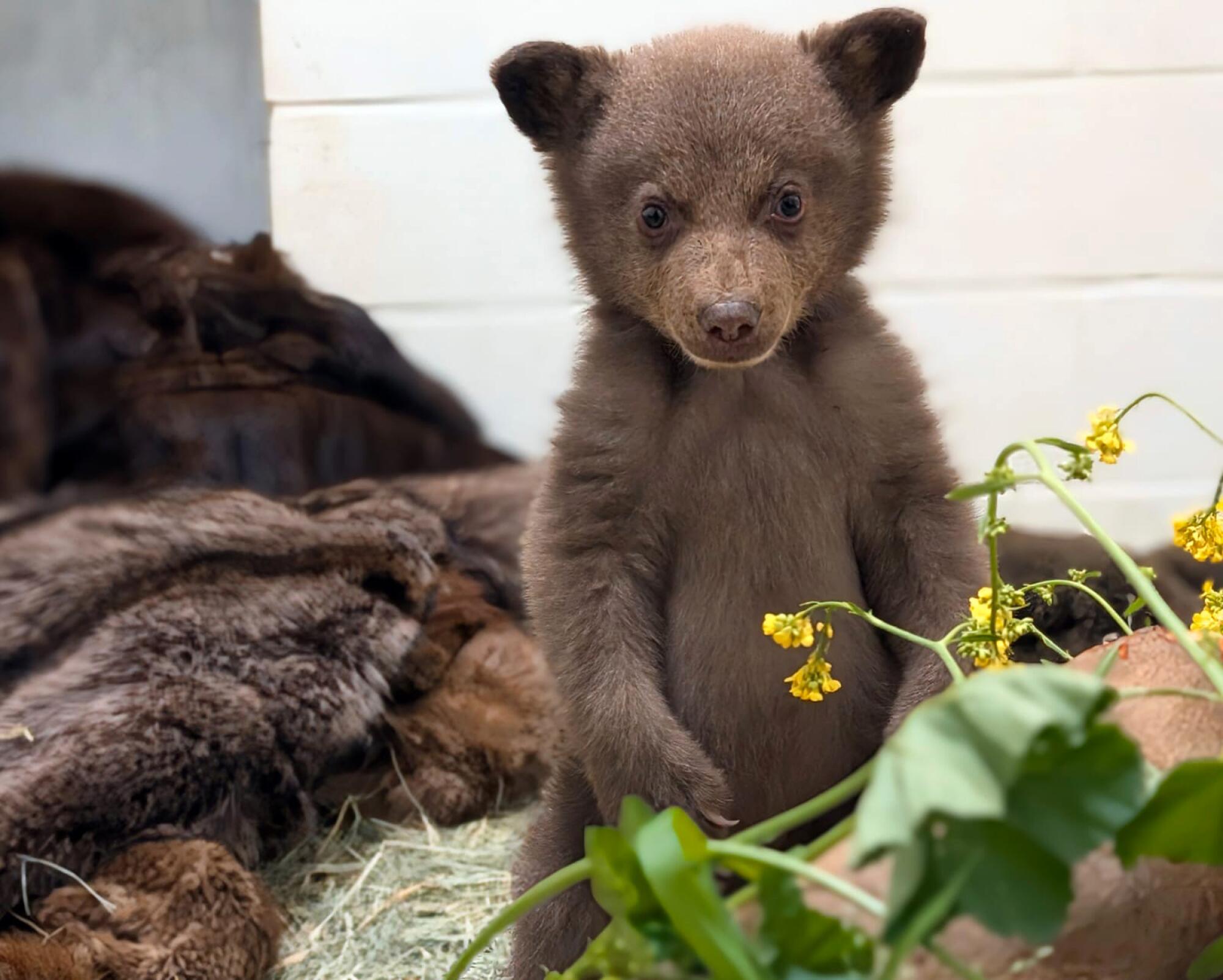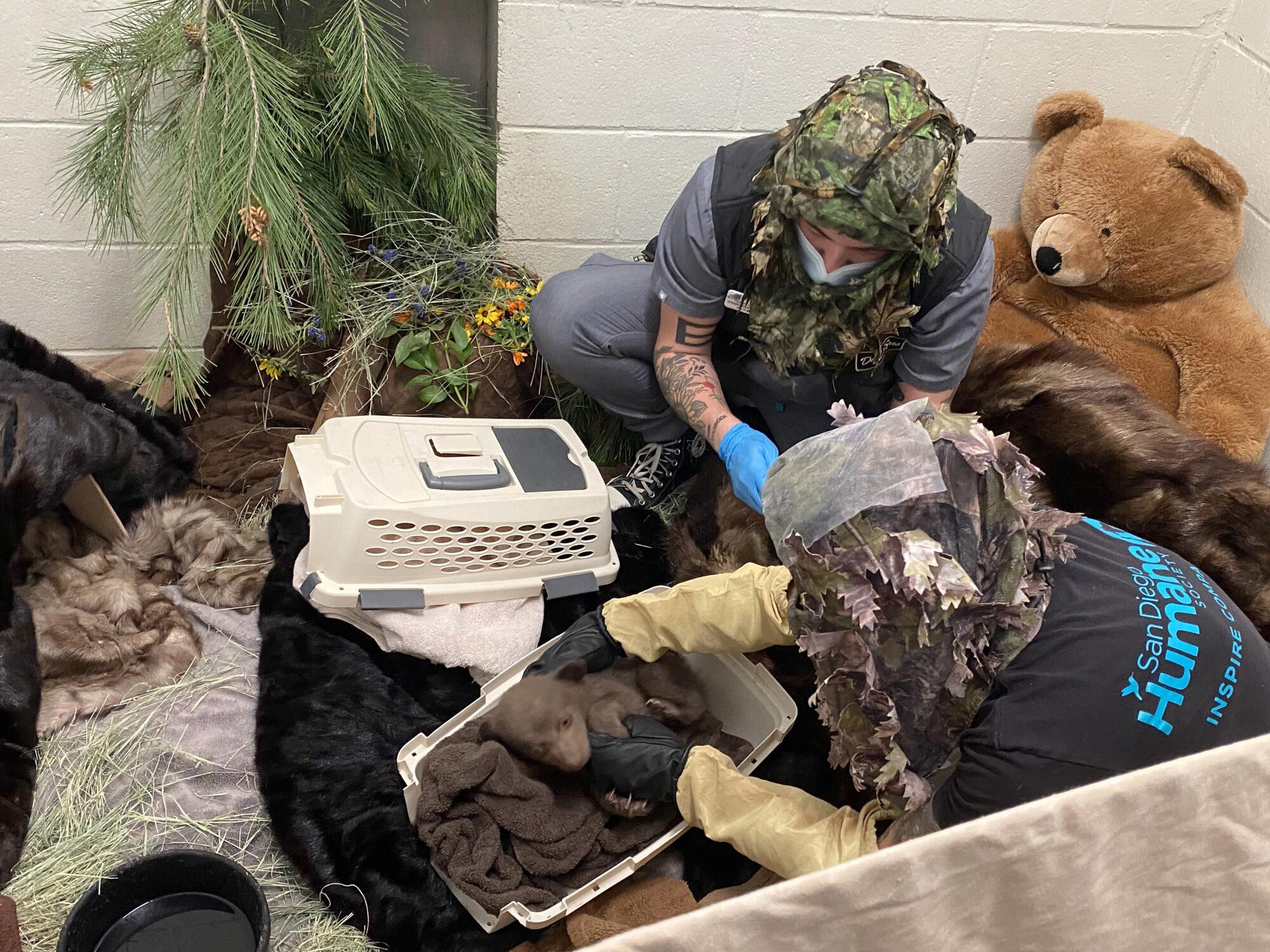A 2-month-old black bear cub recently rescued from the woods is now being raised by a new, faux fuzzy foster family: humans dressed as bears at the San Diego Humane Society’s Ramona Wildlife Center.
To keep the cub from forming bonds with people that could jeopardize his return to the wild, staff members charged with his care are dressing up in bear costumes, including a mask, fur coat and leather gloves.
A staffer in a bear costume helps care for the cub.
(San Diego Humane Society)
“He was extremely fragile when he arrived,” Autumn Welch, the center’s wildlife operations manager, said in a statement. “After going several days without nutrition, it was touch-and-go at first. But now, he’s active, eating well and gaining weight steadily.”
The cub requires four enrichment and feeding sessions every day, with overnight feedings needed in his early days at the center.
The cub was found April 12 in the Los Padres National Forest — underweight, alone and weak, according to a news release from the wildlife center. Biologists tried to reunite the cub with his mother by returning him to the wild, but she didn’t come back.

A young bear cub being rehabilitated at the San Diego Humane Society’s Ramona Wildlife Center.
(San Diego Humane Society)
The California Department of Fish and Wildlife transported the bear to the wildlife center two days after he was found.
The cub will be in the care of the wildlife center for up to a year, and the hope is to return him to the wild. If there’s another cub in California, the agency may try to pair them up to keep them from imprinting on people, according to the release.
The bear is the fourth in the last five years to be rehabilitated in California.

The cub requires four enrichment and feeding sessions every day, according to the center.
(San Diego Humane Society)
“This is a very unusual case,” Welch said. “We don’t often see bears this young without their mother. It’s an honor to care for him, but it’s also a significant commitment.”
For more information on the wildlife center, visit sdhumane.org/programs/project-wildlife/ramona.












